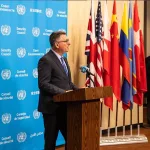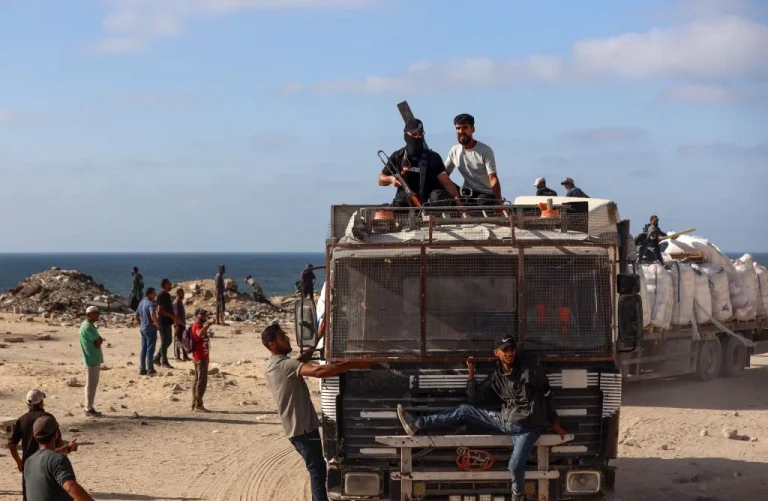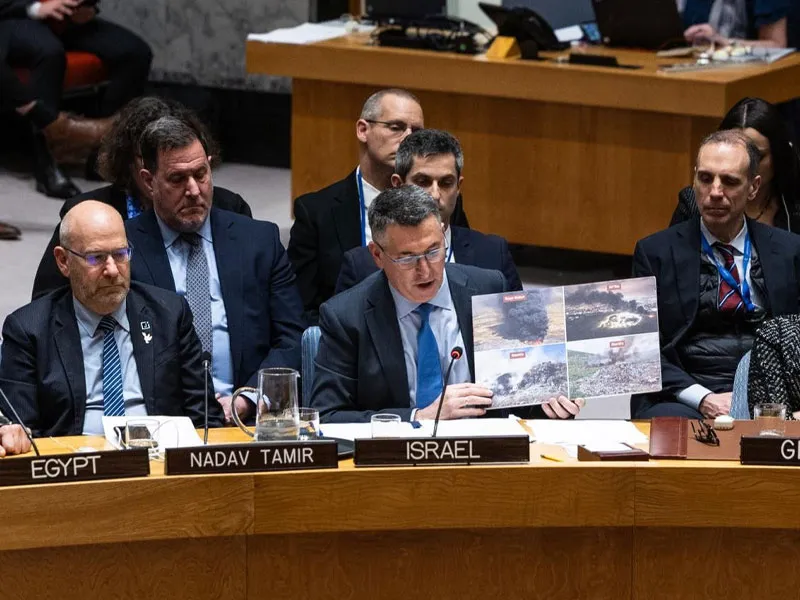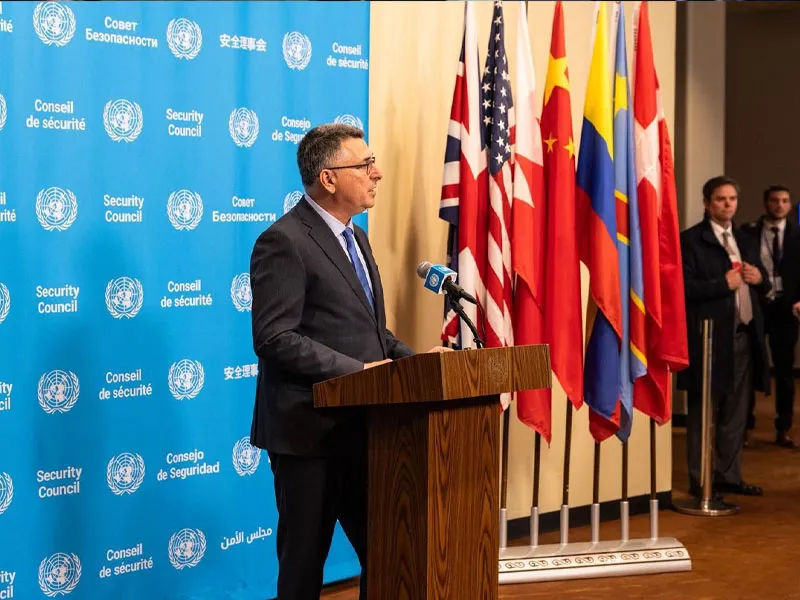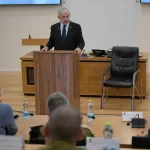Jerusalem, 3 September, 2025 (TPS-IL) — A research study conducted by Israeli academics and released on Tuesday challenges allegations that Israel committed genocide during its war with Hamas in Gaza, arguing that claims of genocide are based on flawed data and ultimately undermine international law.
“The purpose of our investigation is to identify the factual events that occurred, not to engage in legal or ethical discourse,” the authors — Prof. Danny Orbach, Dr. Jonathan Boxman, Dr. Yagil Henkin and Adv. Jonathan Braverman — wrote in their 311-page report. “While discussing the war’s legal and ethical implications is important, we firmly believe such discussion must be grounded in a solid foundation of facts to be meaningful as well as relevant.”
Published by the Bar-Ilan University’s Begin-Sadat Center for Strategic Studies, the report challenges three key areas of genocide allegations: deliberate starvation, systematic targeting of civilians, and indiscriminate bombing campaigns.
Regarding starvation claims, the researchers argue that UN agencies and human rights organizations based their assessments on “empirically false assumptions.” They contend that pre-war Gaza received an average of only 292 trucks daily, with just 73 carrying food — far below the claimed 500 trucks that organizations said were necessary to prevent starvation.
“Throughout most of the war, more provisions were delivered into Gaza than prior to October 7, by a margin greater than any credible estimates of loss of Gazan agricultural production,” the report stated. The authors claim that only 82 food trucks were needed daily during the war to maintain pre-war supply levels, and that Israel “exceeded this number up to the January 2025 ceasefire.”
The study also criticized the reliability of casualty data from the Hamas-controlled Gaza Health Ministry, arguing that “since 2014, Gaza authorities have mandated the classification of all fallen combatants as ‘innocent civilians.’” The researchers claim that Hamas has “consistently sought to present the highest possible civilian fatality count, directing its health ministry to manipulate data.”
No Evidence of Genocide
The authors insisted they found no evidence to suggest “a systematic Israeli policy” of genocide.
According to the report, “those who accuse Israel of genocide erroneously suggest that most civilian casualties in Gaza were entirely unjustified from a military standpoint, portraying those cases in which deaths do seem unjustified not as outliers but as part of a broader, systematic, and deliberate policy of extermination by the IDF. The small number of instances involving persuasive supportive evidence of intentional killings by military personnel does not support this accusation.”
The authors reviewed what they describe as “numerous accusations” and found evidence of deliberate killings accounting for “only 61 fatalities out of the 50,021 war casualties reported by the Gaza Health Ministry.”
The researchers extensively examined Hamas tactics, arguing that the group “consistently employs Gazan civilians as ‘human shields’ to deliberately increase casualties and, in turn, amplify international pressure on Israel.” They describe Hamas’s tunnel network as spanning “over 500 kilometers and include 5,700 connective shafts, all integrated into the civilian infrastructure of the Gaza Strip.”
However, the report also acknowledged Israeli failures. The authors “strongly criticize the Israeli government’s decision in March 2025 to halt aid supplies to Gaza” and note that “it was wrong to block traditional distribution methods before viable alternatives were established.” The IDF argued that this move sharply curtailed Hamas’s revenue stream, with some gunmen and operatives not receiving salaries.
The study also examined the methodology of international organizations, comparing their reporting on Gaza to their assessment of Iraq under sanctions in the 1990s. The authors argue that humanitarian organizations often fall victim to what they term “the humanitarian bias,” where “organizations committed to providing aid often believe alarmist reports from parties to a conflict.”
The researchers concluded by expressing concern about the “widespread use of the term ‘genocide,’” arguing that indiscriminate application of the term could undermine international humanitarian law. “If all high-intensity urban military conflicts in the future — despite significant efforts to protect civilian lives — are labeled as acts of genocide simply because of the immense human suffering they cause, the outcome will be fundamentally contrary to the objectives of international humanitarian law,” they wrote.
The Press Service of Israel reported in November that Hamas and criminal gangs associated with it hijacked 85% of all the trucks entering the Strip with food, water, medicine and other humanitarian items. TPS-IL learned that Hamas granted distribution lines to these groups to ensure that humanitarian aid exclusively reaches Hamas. In return, these gangs receive money, food and vouchers. Hamas also pays these gangs $10,000 a month to maintain checkpoints.
Approximately 1,200 people were killed and 252 Israelis and foreigners were taken hostage in Hamas’s attacks on Israeli communities near the Gaza border on October 7. Of the 48 remaining hostages, about 20 are believed to be alive.









